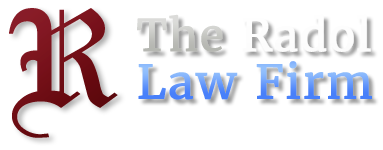Foreclosure on your home can cause an overwhelming amount of stress and uncertainty in your life. You’re worried about not being able to put a roof over your family’s heads and not being able to save your house. If you’re the owner of a business, foreclosure can be just as scary. When you’ve spent so long to plan and build your business, losing it can be a heartbreaking experience. It puts the future of the business in jeopardy and can take away jobs from your hard-working employees. If foreclosure becomes a reality, you may have options to save your property. Contact our professionals to seek legal advice about your situation. The Loss Mitigation Program may be an option that could save your residential or commercial property.
What is the Loss Mitigation Program?
Loss mitigation describes a range of solutions that may stop the loss of a debtor’s property to foreclosure. It may also help to eliminate increased costs that the debtors may have to pay to lenders. For this process to work, loan modification, loan refinance, forbearance, short sale and surrender of property in full satisfaction may become a part of the deal. A combination of these options is also a possibility.
New Jersey’s Loss Mitigation Program is designed to provide a forum for debtors and lenders to reach an agreed-upon resolution when a debtor’s residential property is at risk of foreclosure. Through this program, property owners have the opportunity to save their investment. The program aims to continue open communication between debtors and lenders.
Through the Loss Mitigation Program, debtors and lenders can reach a reasonable agreement that benefits both parties. During this process, the Bankruptcy Court supervises the exchanges between parties and assists when they can.
What are the qualifications to be a part of the program?
Individuals or joint debtors that are filing for Chapter 7, 11, 12 or 13 bankruptcy are eligible to participate in the Loss Mitigation Program. This is possible only if they possess real property or a cooperative apartment that is used as a main residence. Before the process begins, loss mitigation parties should address a few topics. They should speak about the time and method for conducting the loss mitigation sessions. Furthermore, they should touch on the types of loss mitigation solutions that are under the consideration of each party. The parties involved should also create a plan for the exchange of the required information prior to the loss mitigation session. This information can include the due date for the debtor to complete and return any information request or loss mitigation paperwork that each creditor may require.
During this process, a loss mitigation party is allowed to request a settlement conference or status conference with the Bankruptcy Court at any time. They can also ask for an extension of the loss mitigation period. If a party does not consent to this request, the Bankruptcy Court may schedule a hearing to consider if more sessions will reach a successful conclusion. Loss mitigation parties are required to provide the Bankruptcy Court with updates on the procedure. This is to ensure that proceedings are occurring in a timely manner. The parties involved in the process must seek the Bankruptcy Court’s approval for any resolution that they came up with during the loss mitigation process.
If you are unsure of how to proceed with your impending foreclosure, contact us to learn more. We can help throughout the process of loss mitigation if it is the right fit for you.
Our firm understands that so much of your future is on the line in matters of divorce, family law, bankruptcy, and estate planning. Before taking any sort of legal action, it is important to discuss your legal matter with an experienced attorney. Contact The Radol Law Firm to discuss any divorce and family law matters you may be faced with.
